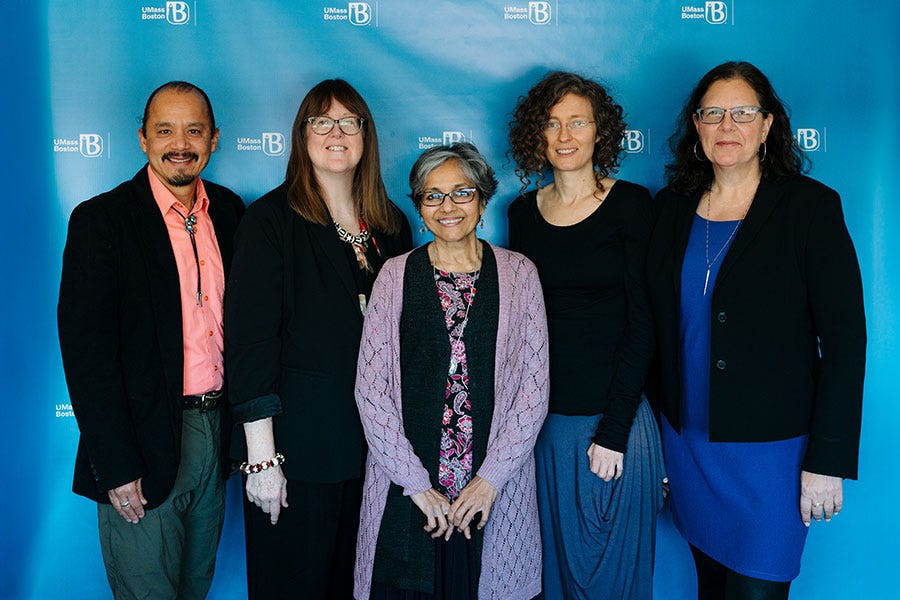At UMass Boston, Caring Work is Just as Important as Scientific Discovery
A critical reading of an NSF grant announcement

Getting a grant is always a joy, at least in the beginning. Everything seems possible, so much money, so much time.
Especially this one, for a million dollars no less, and it is…
… designed to further advance UMass Boston’s ongoing efforts to be a leader in increasing gender and racial equity among the university’s science, technology, engineering, and mathematics (STEM) faculty…
To develop the skills and confidence needed to intervene effectively in real-life situations, a training core provides theater-enhanced bystander interventions (e.g., role-play scenarios) for faculty and administrators involved in faculty reviews.
— NSF: ADVANCE Adaptation: UMass Boston CARES: Communities, Acknowledgment, Recognition, and Equity through a Culture of Sponsorship (Professor Adán Colón-Carmona, Professor Maureen Scully, Dean of Faculty Rajini Srikanth, Associate Professor Katalin Szelényi, and Professor Hannah Sevian)
Theater, sounds fun! There’s also an actual theater event, with the first gig on March 6.
But it’s not fun at all.
There are two approaches to equity: the one suggests to keep the high jump as is and advises to train harder
and the one that proclaims that running under a bar is also a jump:
Similarly, one may decide to lecture school girls about Emmy Noether and Sofya Kovalevskaya and teach them better with these role models in mind. At the college level, one can choose to make sure that service and support roles are distributed equally among the faculty.
But on the other hand, one can declare that “caring work (defined broadly as the social and emotional support faculty provide to students and colleagues), service, and community-engaged research.” is as important for tenure and promotion as scientific discovery (such as the discovery of the Kovalevskaya spinning top, say).

The former approach is costly, the latter is cheap. The former enterprise can fail, the latter can’t. The former strives for real change, the latter perpetuates stereotypes and inequalities, and it is demeaning to women. Oh, and if it does fail, we can always decide to start awarding tenure for office decor:
The floor is the limit.
We could have said that many times before, but what can we do to make people listen? Repeat after me: lowering standards demoralizes the achievers and disorients the struggling. This is true in K-12, this is true in schools for gifted and talented, this is true in college. And this is true in tenure decisions.
Another million dollars are wasted, but we can always do what many poor countries do - cross the zeros off the $100 bills and then it’s just ten thousand. Not a big deal. Inflation.








So much for agency and resilience.